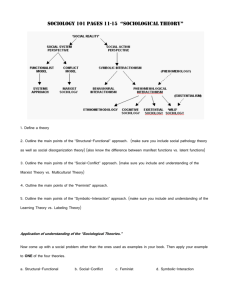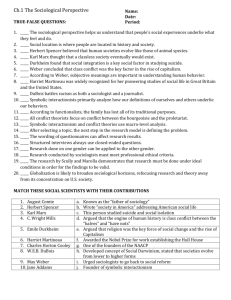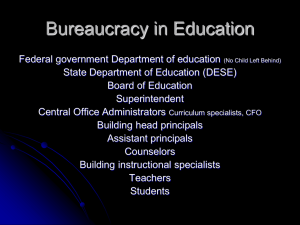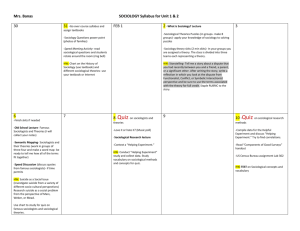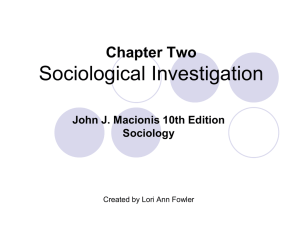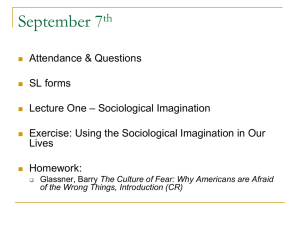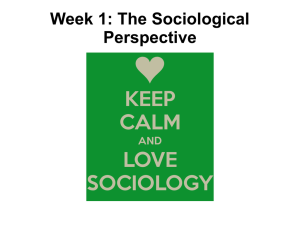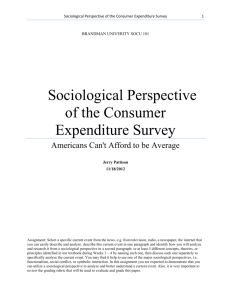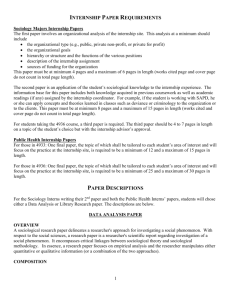COURSE OUTLINE SENIOR 2 HISTORY
advertisement
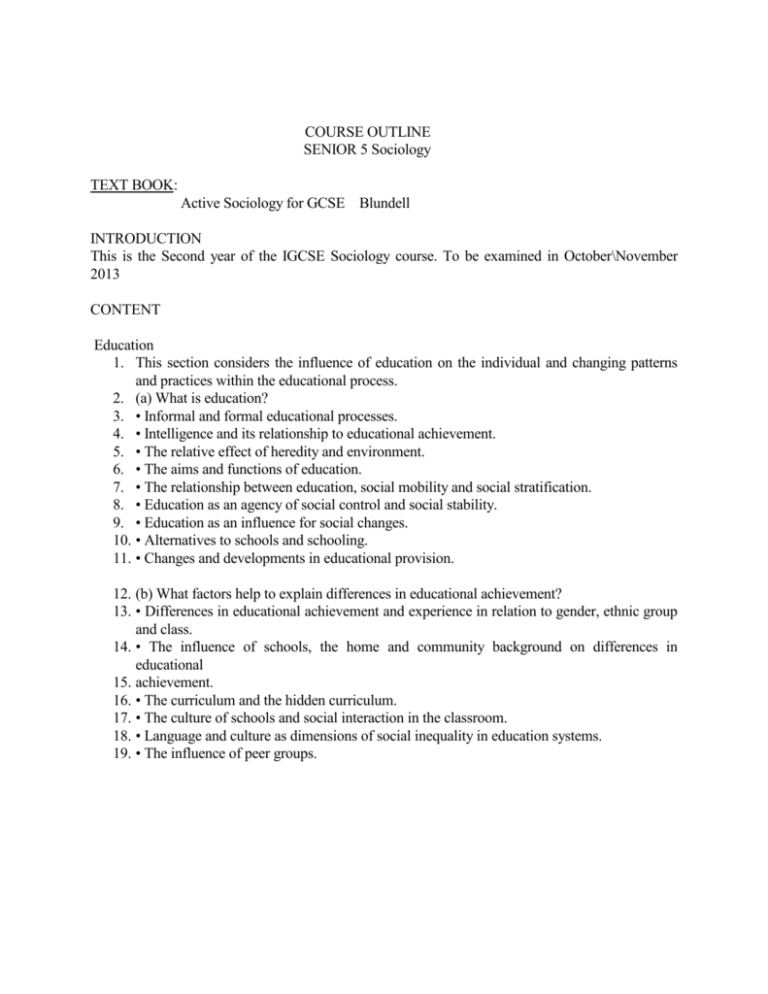
COURSE OUTLINE SENIOR 5 Sociology TEXT BOOK: Active Sociology for GCSE Blundell INTRODUCTION This is the Second year of the IGCSE Sociology course. To be examined in October\November 2013 CONTENT Education 1. This section considers the influence of education on the individual and changing patterns and practices within the educational process. 2. (a) What is education? 3. • Informal and formal educational processes. 4. • Intelligence and its relationship to educational achievement. 5. • The relative effect of heredity and environment. 6. • The aims and functions of education. 7. • The relationship between education, social mobility and social stratification. 8. • Education as an agency of social control and social stability. 9. • Education as an influence for social changes. 10. • Alternatives to schools and schooling. 11. • Changes and developments in educational provision. 12. (b) What factors help to explain differences in educational achievement? 13. • Differences in educational achievement and experience in relation to gender, ethnic group and class. 14. • The influence of schools, the home and community background on differences in educational 15. achievement. 16. • The curriculum and the hidden curriculum. 17. • The culture of schools and social interaction in the classroom. 18. • Language and culture as dimensions of social inequality in education systems. 19. • The influence of peer groups. 2.Power and Authority This section considers power, authority and decision-making in society. (a) What is power? What are the sources of power and authority? • The various forms of power, control and authority: charismatic, coercive, economic, bureaucratic and the control of ideas and beliefs. • Aristocracy, oligarchy, democracy, dictatorship. • Different theories of power: pluralist, Marxist, elite theory. • Differing interpretations of the role of the State in contemporary societies. (b) How are political decisions made? Who influences and makes political decisions? • Decision making: the various forms – democratic and authoritarian. • Some knowledge of the political processes in the candidate’s own society and at least one other contrasting society. • The role of political parties and pressure groups. • Political socialisation and the media. • Elections and the factors that influence voting behaviour. • Freedom and censorship of ideas. Grade descriptions The following grade descriptions are intended to give a general indication of the standards of achievement likely to have been achieved by candidates awarded Grades A, C and F. In practice, the grade awarded will depend upon the extent to which the candidate has met the objectives overall, and this might conceal weakness in some aspect of the examination which is balanced by superior performance in some other. A Grade A candidate will be expected to: • demonstrate a detailed knowledge and clear understanding of a range of sociological ideas, issues and information through logically structured narratives, description and argument • apply sociological concepts and terms in the analysis and interpretation of data and in the development of simple explanations of social phenomena and processes • demonstrate an awareness of the complexity of social life and that differing interpretations of social life are possible • demonstrate the ability to comprehend, analyse and interpret a range of sociological evidence and theories • show some awareness of the effect of values and perspectives or viewpoints on the interpretation of sociological data • recognise the strengths and weaknesses of sociological evidence used for different purposes, particularly in terms of deficiencies and bias. A Grade C candidate will be expected to: • recall sufficient sociological information to present narratives or descriptions which show awareness, at a modest level, of the nature of specific sociological problems, issues and arguments, and to use sociological terms and concepts in such a way as to demonstrate an accurate but unsophisticated understanding of them • demonstrate comprehension of a range of sociological material, and the ability to identify and analyse specific deficiencies in it, though without taking all aspects of the material into account • reach basic conclusions based on a reasoned consideration of some of the available evidence and arguments. A Grade E candidate will be expected to: • recall a limited amount of relevant sociological knowledge, and demonstrate a basic understanding of sociological concepts and terms by the use of obvious examples and comparisons arranged coherently in a simple narrative • show ability to comprehend straightforward sociological evidence, to make comparisons between different pieces of evidence, but without drawing any more than obvious conclusions from the evidence concerned. Grades B, D and F are awarded to students who can meet some but not all or not consistently the criteria for grades A ,C and E respectively HOMEWORK. This will be set once a week and should take about 40 minutes, often you will be asked to complete work begun in class. ASSESSMENT. All of your homework and classwork, . There will be two unit tests in term which will count as 40% of the term grade. In term 2 your mock exam will count as 40% of the term grade.


